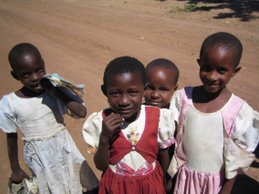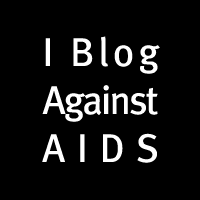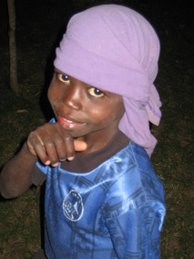A weekend break
The Fourth of July is Liberation day, a public holiday here, so we were blessed with a long weekend. We spent Friday in Kigali at a really lovely guesthouse and heard that the holiday was a very big deal for the manager of the guesthouse. He had hidden under a bed for five weeks during the genocide and was freed when the capital had been liberated fourteen years ago. It’s the kind of story you hear fairly frequently in Rwanda and makes you realise how incredibly resilient the people are.
On Saturday we went to Gisenyi, on the northern side of Lake Kivu, and crossed over to Goma (DRC) for the Cripple to get her visa renewed. Despite making several promises before leaving that I definitely wasn’t crazy enough to go into the Congo with bub, ahem, when it came right down to it, it was definitely the simplest option. The thought of spending nine hours on a bus – twice – in one weekend in order to get to Kampala was just too much. So the Congo it was, though in all actuality it was a very simple crossing. The closest we were to getting in hot water was when the Rwandan immigration official noticed the Cripple’s visa had expired two days beforehand. Thankfully everyone in the line behind us spoke up and said the date definitely looked like a 5 – not a 3 – and after a severe tongue lashing we were through.
We cruised around in Goma for a couple of hours and saw the destruction caused by the volcano erupting.  There’s a ban on taking pictures of almost everything in the DRC, and the few things you are allowed to photograph you need a permit for (which we didn’t have) so we hid our picture taking as much as possible. The greatest excitement occurred when we (the Cripple being a photographer it’s rather hard to resist) took a picture of some fishing boats and were shouted at by the people nearby (who thought we’d taken pictures of them) so at that point we thought it was high time we went back to Rwanda. The return crossing was without incident and the Cripple’s visa is now valid for the rest of her stay here. Woohoo!
There’s a ban on taking pictures of almost everything in the DRC, and the few things you are allowed to photograph you need a permit for (which we didn’t have) so we hid our picture taking as much as possible. The greatest excitement occurred when we (the Cripple being a photographer it’s rather hard to resist) took a picture of some fishing boats and were shouted at by the people nearby (who thought we’d taken pictures of them) so at that point we thought it was high time we went back to Rwanda. The return crossing was without incident and the Cripple’s visa is now valid for the rest of her stay here. Woohoo!
Gisenyi was gorgeous and a lovely break from reality.  The bub enjoyed playing in, and eating, the sand and was delighted to meet another baby around her age who was happy to play with her too. We spent the evening at the nicest hotel in town and spent far too much on a couple of drinks and dinner. But it was tasty, definitely.
The bub enjoyed playing in, and eating, the sand and was delighted to meet another baby around her age who was happy to play with her too. We spent the evening at the nicest hotel in town and spent far too much on a couple of drinks and dinner. But it was tasty, definitely.
The journey back to Kigali was a bit torturous – I had a headache, felt travel sick, was squashed in an uncomfy seat with people sleeping on me on either side and the bub sleeping on my lap did nothing to ease the pressure on my bladder for three hours or so. I was feeling a bit sorry for myself until we passed an accident on the road. A crowd of people from the nearby village had gathered round a bus that had collided with pedestrians (I think)… seeing a body wrapped in cloth on the side of the road sent shivers down my spine and made the small inconveniences I’d been grumbling silently about seem like nothing. When we reached Kigali I found out four people had died in the accident, not just the one I’d seen.
In yet another example of people’s incredible generosity here, on the way back we were offered a place to stay by someone I had met during my first week here. He has a baby born a week before the bub and we’d bonded a bit over baby stories. When we arrived back in Kigali he arranged collecting us, finding us dinner (and amusing the bub while we waited), taking us to the house (a brand new just finished building in the suburbs, one of the nicest places we’ve seen), hot water, a guard and sorted a taxi for the morning to get our lift (at 6am!) back to Byumba. As we were driving down the back roads to the house I had a moment wondering if we were perhaps being abducted. I just couldn’t work out why someone would be so kind. To be honest, I still can’t quite get my head round it. The level of kindness and generosity I’ve experienced on my travels always astonishes me, especially when I consider the way foreigners are treated in my own country.












